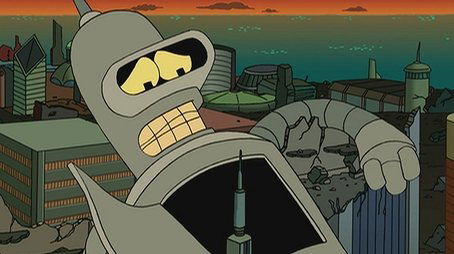
Sorry, we have not watched this yet.

The Professor's "What-If" machine simulates Bender, Leela and Fry's wishes. Bender discovers what it would be like if he were 500 feet tall, Leela discovers what it would be like if she were more impulsive, and Fry discovers what would happen if he never came to the future.
Sorry, we have not watched this yet.